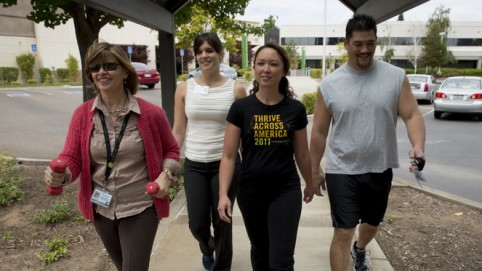Find a practice to try with your team

Personalizing Care for Patients
Asking patients about their sexual orientation and gender identity is helping Addiction Medicine team members better identify and treat patients' health risks and needs.
- Collecting sensitive, personal information from patients can tell you a lot about their health risks and needs and help improve the quality of care for all Kaiser Permanente members.
- Creating a standardized process to collect information about patients’ sexual orientation, gender identity, and preferred pronouns.

Collaboration Across Teams Reduces Interruptions
Laboratory and emergency departments teamed up to decrease work interruptions caused by non-urgent test result notifications.
- Workplace interruptions can add stress, increase patient errors and cause patients to feel like they’re not receiving good care.
- Lab staff tested the secure chat messaging in Kaiser Permanente’s electronic health record system to notify Emergency Department nurses about non-urgent lab results instead of using their hands-free, voice-controlled wearable communication devices.

UBT Solves Overtime Dilemma
This inpatient nursing team decreased overtime costs by improving change-of-shift communication.
- Reducing overtime costs keeps Kaiser Permanente affordable for our members and leads to workflow efficiencies that enhance patient care.
- Standardizing change-of-shift communication

Fighting the Plague of Sick Days
This radiology team reduced sick days after it surveyed employees about attendance policies and created guidelines.
- Absentee workers means drop in productivity and poor member service.
- Rewarding employees who show up with fancy lunch

Communication Goes a Long Way
Member satisfaction increased once folks on the pediatrics unit began a campaign to improve communication with each other.
- A happy staff is a productive staff and better serves the members.
- Having short, informal but frequent meetings

The Key to Great Service: Call and Response
Service scores shot up when this oncology team paired a nurse with a buddy to help with patient response.
- Responding to a patient’s needs is central to their care.
- Pairing with a buddy can shorten patient response times

Reward to Reduce Sick Days
Establishing reward and recognition programs for good attendance helps this team reduce the number of sick days taken.
- Our members and patients count on us to be at work to provide them excellent care and service.
- Creating reward programs and allowing flexible schedules helps keep staff on the job

Always Answer the Phone
This oncology department's service scores went up when it corrected wrong numbers, added voice mail and made other improvements.
- Providing the best service to our patients and members means being there for them.
- Providing correct phone numbers is a good first step

Be Quiet. Respect Nap Time
When this mother/baby unit instituted a regular nap time, moms got more rest and the success for breastfeeding increased.
- Nap times help reduce the number of requests for respite care.
- Created an afternoon nap time, and communicated to staff and family about this quiet period

Personalize The Need for Screening
After identifying eligible members for colorectal screening, the team developed a personalized story for each patient, and created a follow-up process to contact them.
- Early detection is paramount to successful cancer treatment.
- Bringing the message to a personal level helps patients to understand

Raising the (Morale) Bar
When a team is not getting along, the only real option is to talk it out.
- Negativity and distrust will tear a team apart.
- Getting the entire staff communicating can break down barriers

Whiteboard Helps Rehab Communications
Information-sharing improved among different groups of the care giving staff.
- Nurses, physical therapists, patients and family members all have the same information about the case.
- Using a whiteboard in patient rooms to record physical therapy sessions
